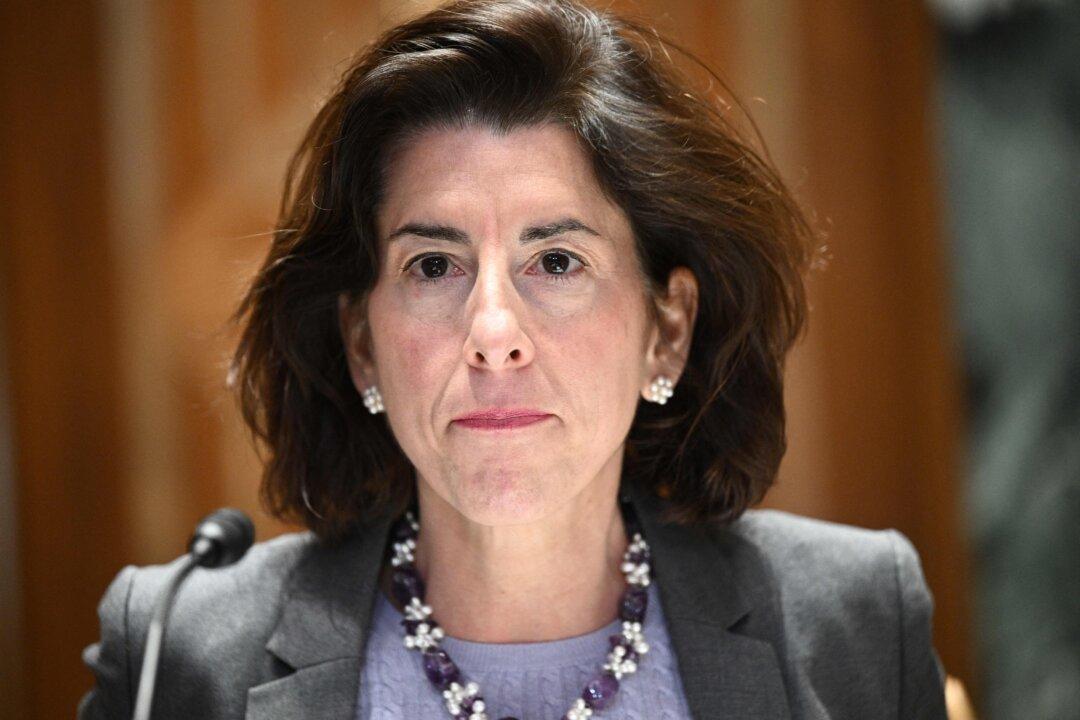House Speaker Nancy Pelosi’s (D-Calif.) support of Taiwan has complicated the Biden administration’s efforts to curb tariffs against China, according to Commerce Secretary Gina Raimondo.
Pelosi’s Taiwan Visit Made It ‘Harder’ for Biden to End Trump’s China Tariffs: Commerce Secretary

Secretary of Commerce Gina Raimondo testifies on Capitol Hill on May 11, 2022. Brendan Smialowski/AFP via Getty Images



